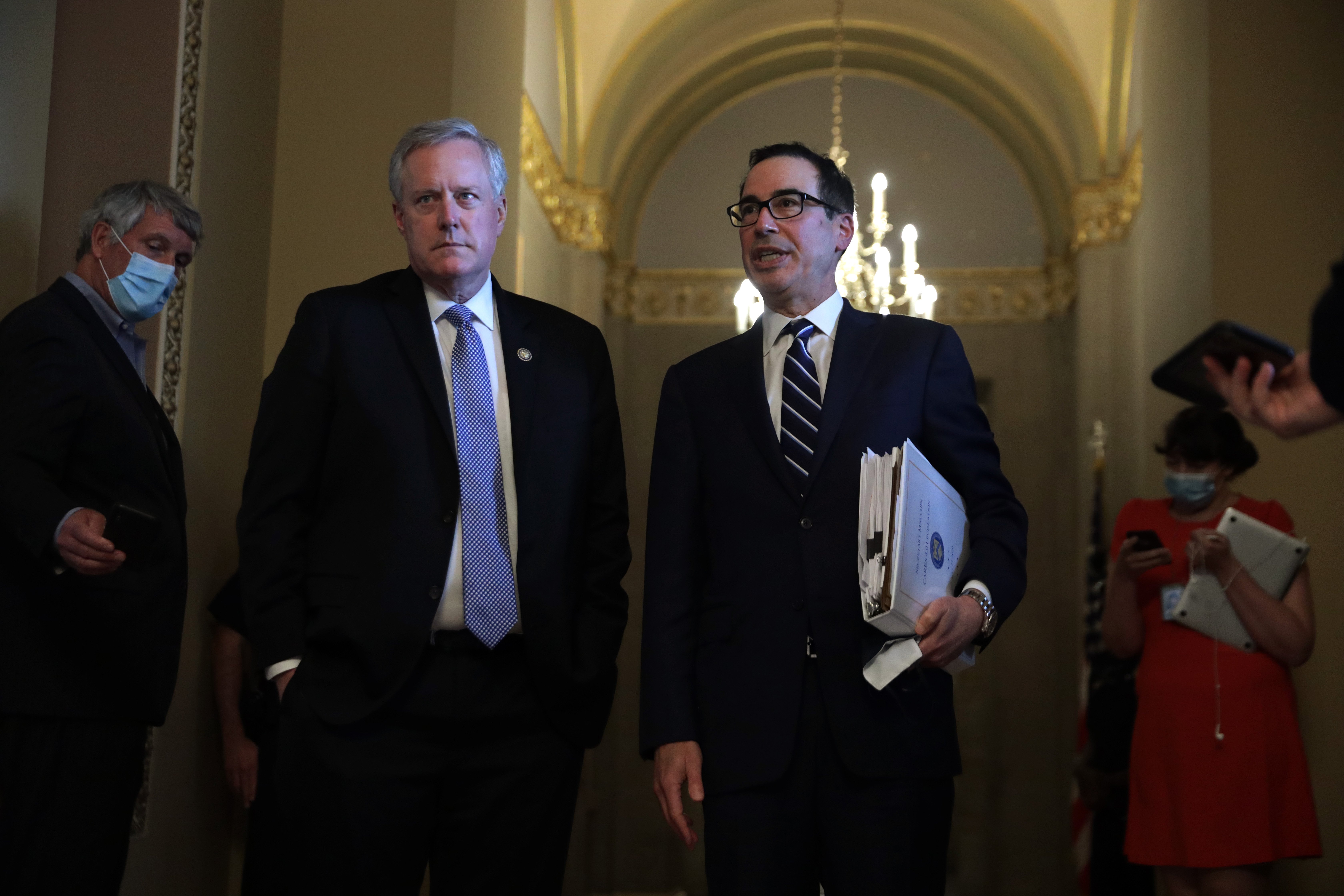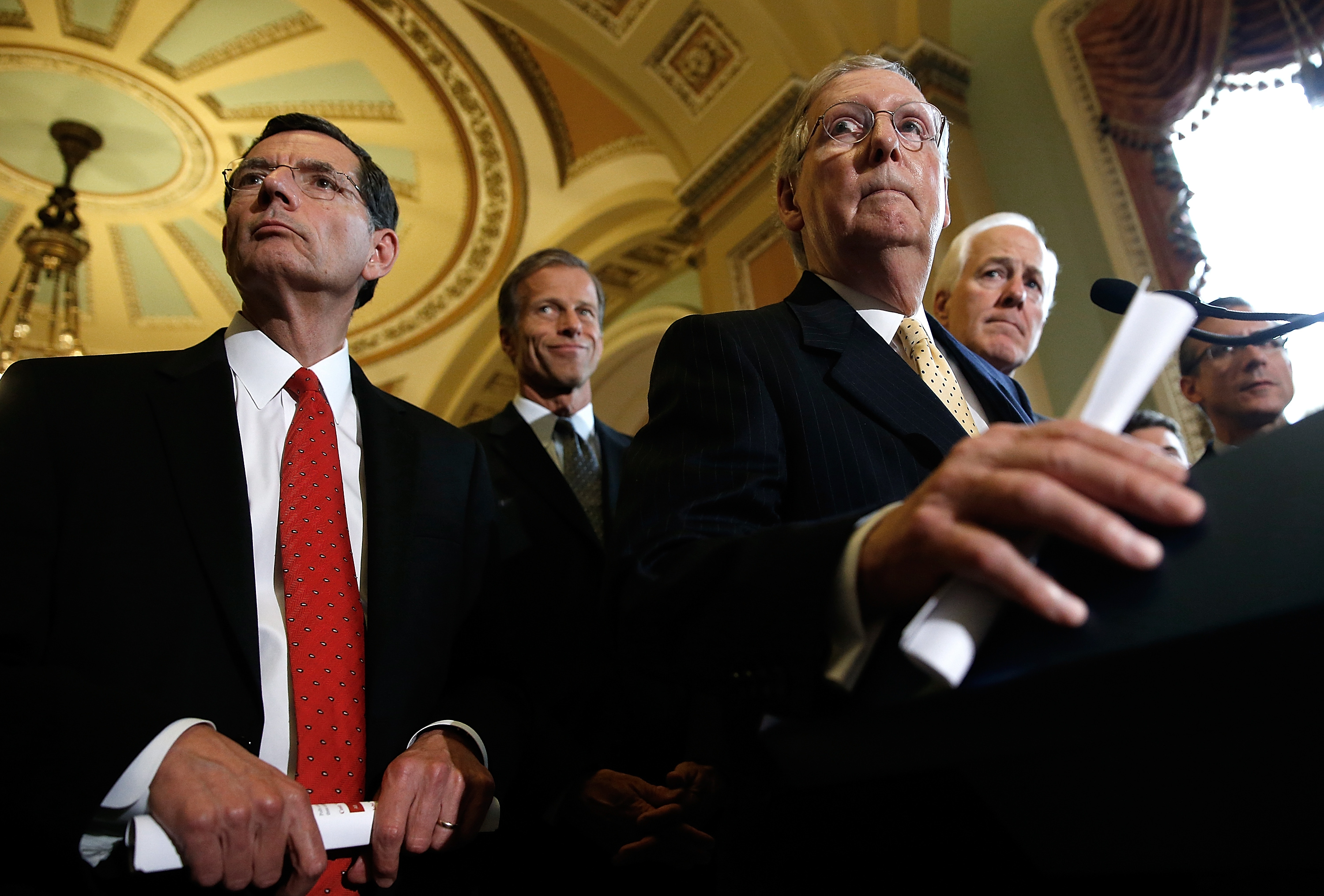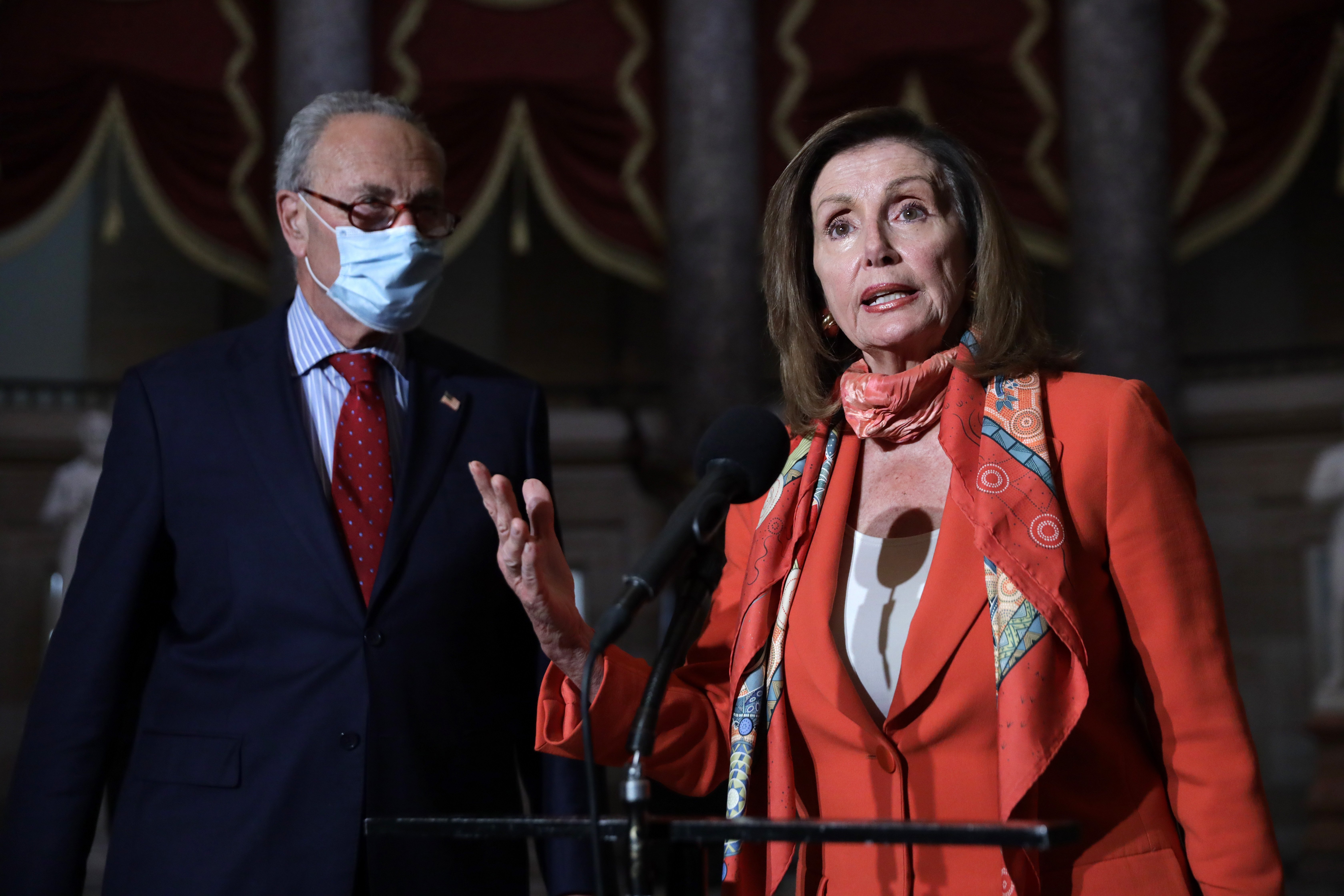White House chief of staff Mark Meadows, during an appearance in the White House briefing room last week, slammed Democrats after a week of failed negotiations with Senate Minority Leader Chuck Schumer and Speaker of the House Nancy Pelosi.
“At the president’s direction, we have made no less than four different offers to Democrats on Capitol Hill,” Meadows told reporters. “Those four different offers have been actually rejected — but more importantly than that, they’ve not even been countered,” he added.
WATCH:
Senate Majority Leader Mitch McConnell unveiled a $1 trillion coronavirus stimulus package July 27 after negotiations with other Senate Republicans. The Republican plan, dubbed the HEALS Act, was introduced as a counter-offer to the $3 trillion HEROES Act introduced by Democrats in May.
The bills introduced by Senate Republicans and House Democrats would potentially be the fourth phase in coronavirus recovery legislation. The $2 trillion CARES Act was the third phase of Congress’s coronavirus response and was signed into law by President Donald Trump in March.
McConnell said the stimulus package consisted of several bills introduced by Senate Republicans in a statement July 27. Four bills in particular make up the bulk of the stimulus package and address liability protection, unemployment benefits, the Paycheck Protection Program (PPP) and school reopening.

Secretary of the Treasury Steven Mnuchin speaks to the media as White House Chief of Staff Mark Meadows listens (Alex Wong/Getty Images)
The Safe to Work Act was introduced July 27 by Republican Texas Sen. John Cornyn. The bill creates temporary exclusive federal causes of action for personal injury and medical liability claims arising from exposure to the coronavirus, according to Senate Republicans. A five year liability shields schools, businesses and hospitals from being sued over coronavirus-related issues.
The American Workers, Families, and Employers Assistance Act was introduced July 27 by Republican Iowa Sen. Chuck Grassley. This bill addresses a large part of the stimulus relief plan and includes changes to unemployment benefits. (RELATED: Senate Republicans List Benefits For Lobbyist As Reason They Might Vote Against Phase 4 Stimulus Bill)
The bill maintains the same maximum stimulus check payment amount as the CARES Act. $1,200 is allotted to single filers earning under $75,000 annually and $2,400 is allotted to joint filers earning under $125,000 annually. The bill also gives $500 for each dependent but eliminates the age limit from the CARES Act.
Grassley’s bill departs significantly from the $600 in weekly unemployment benefits offered by the CARES Act. The Republican bill initially offers $200 per week through September but increases the amount to $500 per week to match 70% of lost wages, according to Senate Republicans. The plan extends benefits until the end of the year.

Senate Majority Leader Mitch McConnell answers questions with Republican leaders (Win McNamee/Getty Images)
The Continuing Small Business Recovery and Paycheck Protection Program Act was introduced July 27 by Republican Florida Sen. Marco Rubio. The bill allocates an additional $190 billion into the PPP fund and expands eligibility for small businesses to receive loans.
The bill also eliminates the requirement that 75% of loans must be spent on payroll to satisfy forgiveness requirements, according to Senate Republicans. (RELATED: Paycheck Protection Program Supporting More Than 51 Million Small Business Jobs, Trump Administration Announces)
The Safely Back to School and Back to Work Act was introduced July 27 by Republican Tennessee Sen. Lamar Alexander. The bill mostly addresses school reopening, which was not included in the CARES Act. $70 billion is allocated to K-12 schools that open for in-person classes and $29 billion is allocated for higher education, according to Senate Republicans.
Congressional Democrats have repeatedly rejected the proposals made by Republicans despite more than a week of negotiation between the two groups, CNBC reported. “We’re nowhere close to a deal,” Meadows said. Democrats have said the Republican plan isn’t “comprehensive” enough and plan to stick by their HEROES Act.

Speaker of the House Rep. Nancy Pelosi speaks to members of the press as Senate Minority Leader Chuck Schumer listens (Alex Wong/Getty Images)
One area of contention between the two sides is over unemployment benefits, according to CNBC. “We’ve been for the $600. They have a $200 proposal, which does not meet the needs of America’s working families, and it’s a condescension, quite frankly,” Pelosi said during an interview on ABC’s “This Week” Sunday.
Another point Democrats have made in rejecting the Republican plan is that it does not go far enough, Politico reported. “A trillion dollars is OK, that’s an interesting starting point. But that doesn’t come anywhere near,” Pelosi said last week at a news conference. (RELATED: Nancy Pelosi’s Multi-Billion Dollar Amnesty)
Democrats are likely to stick to the HEROES Act. The plan offers $437 billion in unemployment benefits compared to the Republican plan’s $110 billion, according to USA Today. The Democrats would spend $113 billion more on direct payments compared to the $300 billion found in the Republican plan.
The Democrats would also give $1 trillion in aid to state and local governments and $200 billion in housing relief, according to USA Today. The Republican plan does not include these provisions.


